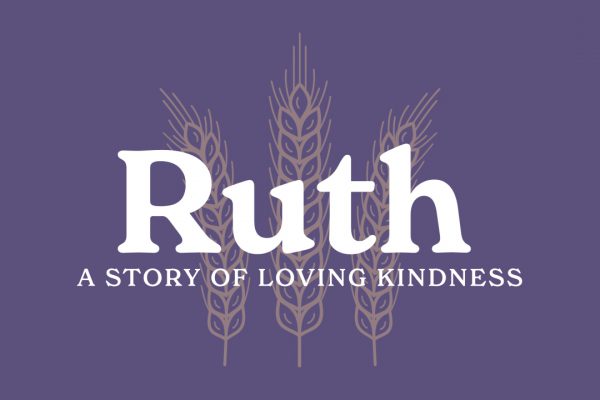Each week in our church’s liturgy, after a passage of Scripture is read, the service leader declares: “This is God’s word.” The congregation then responds together: “Thanks be to God!” This dialogue has found its way into many different Christian liturgies, and there are several reasons why we decided to incorporate it into ours.
It’s based on the pattern found in Scripture.
First, in the Old Testament, the public reading of God’s word is usually followed by some kind of verbal response from the people. For example, at Mount Sinai, “Moses came and told the people all the words of the Lord and all the rules. And all the people answered with one voice and said, ‘All the words that the Lord has spoken we will do’” (Ex. 24:3, 7). Following David’s song of thanksgiving, “the people said ‘Amen!” and praised the Lord” (1 Chr. 16:36). And when Ezra read from the Book of the Law before the assembly, and bless the Lord, “all the people answered, ‘Amen, Amen’” (Neh. 8:6).
A corporate response, such as “Amen” or “Thanks be to God,” serves to indicate that we have heard the word of the Lord and receive it as such; that we agree with its truthfulness and affirm its trustworthiness; that we believe it and will respond to it appropriately. Of course, any of our words said (or sung) in the liturgy can be thoughtless and insincere. But this reply is intended to be spoken from a sincere heart full of joyful gratitude.
It’s an acknowledgment that God has spoken.
Second, saying “Thanks be to God” is a helpful way to acknowledge the fact that the Lord has graciously chosen to give us his word. If we are to know God, then he must reveal himself to us. Otherwise, we would never be able to have a personal relationship with him. Without his word, we would never know Truth. Without his promises, we would never have hope. Without his revelation, we would never experience abundant life. But thanks be to God that he has spoken, and that he has given us his life-giving word. He has even given us his incarnate Word, his beloved Son Jesus, that we might know and have communion with the Triune God.
When the reader says, “This is the word of the Lord,” we are being reminded that God’s Word is a good gift of his grace, for which we must always give thanks!
It’s the right response no matter what God has spoken.
Third, this must always be our response to every word that comes from the mouth of the Lord. We don’t just give thanks that God has spoken to us; we are to give thanks no matter what he says to us. It’s easy to be grateful for words of comfort and assurance. We have no problem saying “Thank you” when it’s a good word, an encouraging word, an uplifting word. But what about when God speaks a word of judgment? What about when hear a passage that doesn’t sound pleasant to our ears, or a story that doesn’t sit well with our souls, or a doctrine that we may be tempted to disagree with? What should our response be when the sword of the Spirit cuts us to the heart and convicts us of sin, when the light of Scripture exposes our idols and hidden sins, when the word of the Lord rebukes and corrects us? We respond: “Thanks be to God!”
Peter Leithart writes: “No matter what word He speaks, no matter how shattering or startling, the liturgy trains the church to say , ‘Thank you.’ It’s more than etiquette. It’s a confession of faith: Even when He kills us, God intends good. He intends to raise us to new life.”1 Because our God is always good and always does good, we give thanks when we hear his word (Ps. 119:68).
It sets the tone for the rest of the week.
Fourth, this small but profound gesture of gratitude is not only meant to be something we say on Sunday but throughout the entire week. As the redeemed people of God in Christ, we are to give thanks always, for everything, and in all circumstances (Eph. 5:20; Col. 3:17; 1 Thess. 5:18). The thanks that we give in the liturgy—as well as the sacrifices of praise that we sing, the prayers of confession that we pray, and the words of welcome that we say—are to be our experience each and ever day. This is what Lord’s Day worship does: it trains us. It reshapes us. It reorients us.
As Leithart puts it: “Sunday’s ‘Thank you’ sets the tone for the rest of the week. When God speaks in the world, in the midst of difficulties in family or at work, in the midst of our doubts and fears, we repeat Sunday’s ‘Thank you.’ Thus the liturgical dialogue [where God speaks to his people and we respond in grateful worship] reshapes the dialogic patterns of life.”2
Conclusion
So, the next time you hear a passage of Scripture read in the worship gathering, and the service leader says, “This is God’s Word,” remember that our God has graciously chosen to speak to us, most supremely through his Son, Jesus. Remember that all of his words are good and right and true, “that his commandment is eternal life” (John 12:50). Hear the word of the Lord and respond with a joyful, heartfelt, sincere, and enthusiastic, “Thanks be to God!”
Endnotes
- Peter Leithart, On Earth as in Heaven: Theopolis Fundamentals (Bellingham, WA; Lexham Press, 2022), 279-280.
- ibid., 280.




